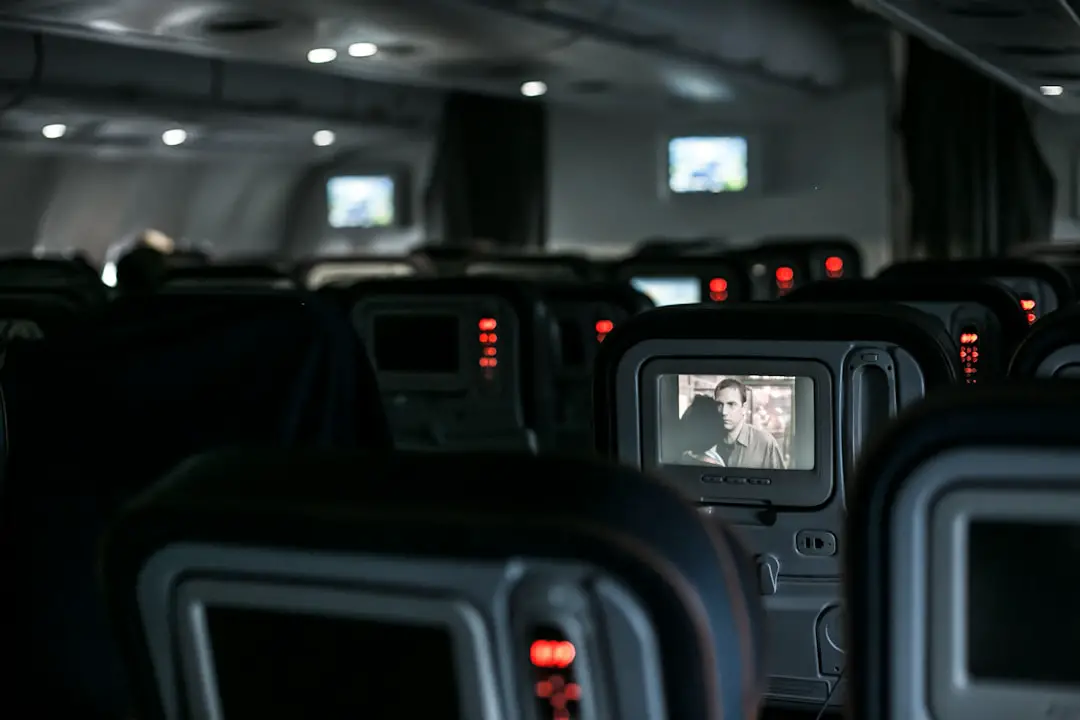Travel agents have long served as intermediaries between travelers and airlines, providing valuable services that enhance the travel experience. One of the primary ways these professionals earn their living is through commissions on flight bookings. These commissions are a percentage of the ticket price that airlines pay to travel agents for facilitating the sale.
While the concept of commissions is straightforward, the intricacies of how they are calculated, negotiated, and impacted by various factors can be quite complex. Understanding travel agent commissions is essential for both agents and consumers, as it sheds light on the financial dynamics of the travel industry. The evolution of travel agent commissions has been influenced by numerous factors, including changes in airline pricing strategies, the rise of online booking platforms, and shifts in consumer behavior.
In recent years, the landscape has become increasingly competitive, prompting travel agents to adapt their business models and explore new revenue streams. As travelers become more tech-savvy and accustomed to booking flights online, traditional commission structures have faced challenges. This article delves into the various aspects of travel agent commissions on flights, providing insights into how they work, what influences them, and the future outlook for this vital component of the travel industry.
Key Takeaways
- Travel agents earn commissions on flights by booking tickets for their clients through airlines
- Factors affecting travel agent commissions include the type of ticket, class of service, and the airline’s commission structure
- Average commission rates for flight bookings range from 1-5% of the ticket price
- Travel agents can negotiate commission rates with airlines to increase their earnings
- Additional income opportunities for travel agents include selling travel insurance, car rentals, and hotel bookings
Factors Affecting Travel Agent Commissions
Several factors play a crucial role in determining the commission rates that travel agents receive for flight bookings. One of the most significant influences is the airline’s pricing strategy. Airlines often set different commission rates based on their business models, market positioning, and competitive landscape.
For instance, low-cost carriers may offer lower commissions compared to full-service airlines, as they focus on keeping ticket prices low to attract budget-conscious travelers. This disparity can lead to varying commission structures across different airlines, making it essential for travel agents to understand the nuances of each airline’s approach. Another critical factor affecting commission rates is the type of ticket being sold.
For example, round-trip tickets may yield different commission percentages compared to one-way tickets or multi-city itineraries. Additionally, promotional fares or discounted tickets may come with reduced commissions, as airlines aim to stimulate demand without incurring high costs. Travel agents must navigate these complexities while also considering their clients’ preferences and budget constraints.
The ability to effectively communicate these nuances to clients can enhance the agent’s value proposition and foster long-term relationships.
Average Commission Rates for Flight Bookings

The average commission rates for flight bookings can vary significantly based on several factors, including the airline, ticket type, and market conditions. Traditionally, travel agents received commissions ranging from 5% to 10% on domestic flights and slightly higher percentages for international flights. However, in recent years, many airlines have shifted towards a more restrictive commission model, with some offering flat fees or even eliminating commissions altogether for certain routes or fare classes.
This shift has prompted travel agents to adapt their strategies and seek alternative revenue sources.
These incentives may reward agents for achieving specific sales targets or promoting particular routes or services.
As a result, commission rates can fluctuate based on an agent’s performance and relationship with the airline. Understanding these dynamics is crucial for travel agents looking to maximize their earnings while providing clients with competitive pricing and exceptional service.
How Travel Agents Earn Commissions on Flights
| Flight Booking | Commission Rate |
|---|---|
| Domestic Flights | 1-5% |
| International Flights | 5-10% |
| Business/First Class | 10-15% |
Travel agents earn commissions on flights through a variety of mechanisms that reflect their role as facilitators in the booking process. When a client books a flight through an agent, the airline pays a commission based on the agreed-upon rate for that particular booking. This payment is typically made after the flight has been completed or within a specified timeframe following the ticket purchase.
The commission structure can vary depending on whether the agent is part of a larger agency or operates independently.
These fees can be applied for various services, such as itinerary planning, ticket changes, or additional support during travel disruptions.
By combining commissions with service fees, agents can create a more sustainable income model that compensates for fluctuations in airline commission rates. This dual approach allows agents to maintain profitability while continuing to provide valuable services to their clients.
Negotiating Commission Rates with Airlines
Negotiating commission rates with airlines is a critical skill for travel agents seeking to enhance their earnings potential. The negotiation process often involves building strong relationships with airline representatives and demonstrating an agent’s value in driving sales. Agents who consistently book a high volume of tickets or specialize in niche markets may have more leverage when negotiating favorable commission rates.
Additionally, agents who can showcase their expertise in specific destinations or travel segments may be better positioned to secure higher commissions. The negotiation process can also be influenced by market conditions and competition among airlines. In a highly competitive environment, airlines may be more willing to offer attractive commission rates to incentivize agents to promote their services over those of competitors.
Conversely, during periods of economic downturn or reduced travel demand, airlines may tighten their commission structures as part of cost-cutting measures. Travel agents must remain adaptable and proactive in their negotiations to ensure they are maximizing their earning potential in an ever-changing landscape.
Additional Income Opportunities for Travel Agents

Beyond traditional flight commissions, travel agents have numerous opportunities to diversify their income streams and enhance their overall profitability. One avenue is through selling ancillary services such as travel insurance, hotel accommodations, car rentals, and guided tours. By offering these additional services alongside flight bookings, agents can create comprehensive travel packages that appeal to clients seeking convenience and value.
Moreover, many travel agents are increasingly leveraging technology and online platforms to expand their reach and attract new clients. Social media marketing, email campaigns, and personalized websites can help agents showcase their expertise and connect with potential travelers. Additionally, some agents are exploring affiliate marketing opportunities with travel-related businesses, earning commissions by promoting products or services through their networks.
This multifaceted approach not only increases income potential but also enhances the overall client experience by providing a one-stop-shop for all travel needs.
Challenges and Risks of Commission-Based Income for Travel Agents
While commission-based income offers opportunities for travel agents, it also presents several challenges and risks that must be navigated carefully. One significant challenge is the volatility of airline commission structures, which can change frequently based on market conditions or corporate strategies. Agents who rely heavily on flight commissions may find themselves vulnerable during periods of reduced earnings or shifts in airline policies.
Additionally, competition from online booking platforms poses a substantial threat to traditional travel agencies. Many consumers now prefer to book flights directly through airline websites or third-party aggregators that offer lower prices and instant booking capabilities. This trend has led some airlines to reduce or eliminate commissions altogether for bookings made through traditional channels.
To remain competitive, travel agents must continuously adapt their business models and find innovative ways to demonstrate their value to clients.
Conclusion and Future Outlook for Travel Agent Commissions
The future outlook for travel agent commissions is likely to be shaped by ongoing changes in consumer behavior, technological advancements, and evolving airline strategies. As travelers increasingly turn to digital platforms for booking flights, traditional commission structures may continue to face pressure. However, this shift also presents opportunities for travel agents who can leverage technology to enhance their services and provide personalized experiences that online platforms cannot replicate.
Moreover, as the travel industry continues to recover from global disruptions such as pandemics or economic downturns, there may be renewed interest in the expertise that travel agents offer. Clients seeking reassurance and guidance during uncertain times may turn to professionals who can navigate complex itineraries and provide support throughout their journeys. By embracing innovation while maintaining a focus on client relationships, travel agents can position themselves for success in an evolving landscape where commissions remain a vital component of their business model.
If you’re interested in learning more about travel essentials, you may want to check out this article on the best carry-on luggage for international travel. It provides valuable information on choosing the right luggage for your trips. Additionally, if you have any questions or need assistance with your travel plans, feel free to reach out to us through our must-have portable water bottles for your upcoming spring travels.
FAQs
What is the typical commission rate for travel agents on flights?
The typical commission rate for travel agents on flights is around 1-5% of the total ticket price.
Do travel agents receive commission on all flights they book?
No, travel agents do not receive commission on all flights they book. Commission rates and eligibility can vary based on the airline, ticket type, and other factors.
Are there any additional incentives or bonuses for travel agents booking flights?
Some airlines and travel companies offer additional incentives or bonuses to travel agents for booking flights, such as performance-based bonuses, upgrades, or access to exclusive deals.
How do commission rates for flights compare to other travel bookings?
Commission rates for flights are generally lower than other travel bookings, such as hotels, tours, or car rentals. This is due to the competitive nature of the airline industry.
Are there any changes or trends in commission rates for travel agents on flights?
In recent years, some airlines have reduced or eliminated commission rates for travel agents on flights, leading to a shift in the business model for many travel agencies. This has led to an increased focus on service fees and other revenue streams.
